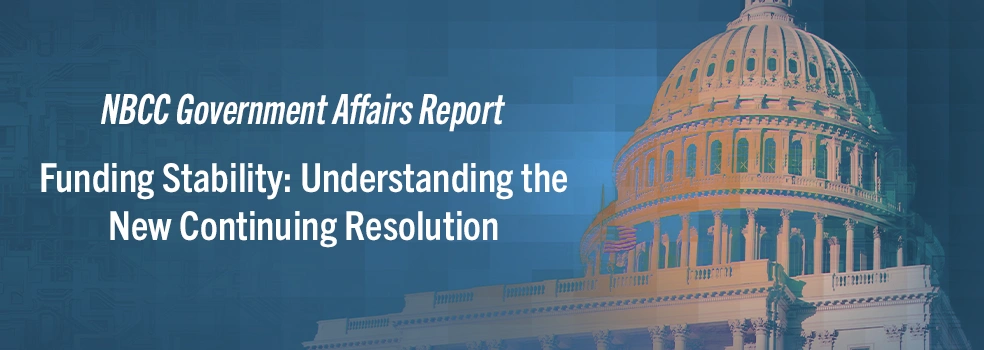
On March 14, Congress passed a critical continuing resolution (CR) that extends federal government funding through Sept. 30, 2025 (the end of the federal fiscal year), averting a potential government shutdown across agencies and providing stability for essential mental health care services.
This resolution comes at a pivotal time when mental health and telehealth services face unprecedented demand amid ongoing behavioral health care challenges.
Comprehensive Funding Framework
The CR allocates approximately $1.7 trillion across all federal agencies, maintaining most programs at their previous funding levels. Unlike earlier short-term resolutions that created uncertainty, this 6-month extension offers a more stable planning horizon for counselors and agencies that rely on federal support.
Telehealth Provisions: Extending Pandemic-Era Flexibilities
Perhaps most significantly for counselors and other providers, the CR extends crucial telehealth flexibilities under Medicare through Sept. 30, 2025, including:
- Geographic Restrictions Waived: Eliminates location requirements for telehealth services, allowing Medicare coverage for patients receiving care in their homes.
- In-Person Visit Requirements Suspended: Removes mandatory initial and follow-up in-person visits for telebehavioral health services that were previously required under the Consolidated Appropriations Act of 2021.
- Audio-Only Service Access: Continues reimbursement for telephone-only appointments, ensuring access for patients lacking video capability or reliable internet.
- Expanded Facility Eligibility: Maintains telehealth service coverage for rural health clinics and federally qualified health centers.
- Universal Medicare Coverage: Extends telehealth benefits to all Medicare beneficiaries when provided by Medicare-eligible practitioners.
NBCC strongly advocated for telehealth extensions and appreciates Congress’s commitment to prioritize telebehavioral funding, noting that telebehavioral health care has become an essential component of mental health care delivery, where virtual visits have shown comparable efficacy to in-person care for many conditions.
Implementation Challenges and Opportunities
Though the funding extension provides needed stability, implementation challenges remain. Federal agencies must work quickly to distribute funds and provide updated guidance. For counselors, this presents both challenges in navigating evolving regulations and opportunities to secure resources for improved service delivery.
NBCC recommends that counselors and organizations stay engaged for the latest guidance on accessing funding opportunities and implementing compliant telehealth programs under the extended provisions.
Looking Ahead
Though the CR extends federal funding and telehealth provisions through September 2025, NBCC is already advocating for permanent solutions to telehealth funding in the next full appropriations cycle. While CRs provide immediate stability, their temporary nature creates ongoing uncertainty for long-term planning and investment in these essential services by practices and agencies.
For now, counselors can proceed with greater confidence through the remainder of the fiscal year, knowing that critical funding streams and regulatory flexibilities remain intact during this transitional period.
Mandatory spending programs—including Medicare, Medicaid, and Social Security—remain unaffected by the CR, as they operate outside the annual appropriations process. These programs continue functioning automatically based on their statutory funding mechanisms unless Congress specifically alters their underlying legislation. Notably, discussions about potential changes to these programs have already commenced through the separate “budget reconciliation” process, which follows a distinct legislative track with different procedural rules and voting requirements than standard appropriations bills.
Stay connected with us for timely analysis of how future funding decisions may impact mental health services and telehealth provisions.